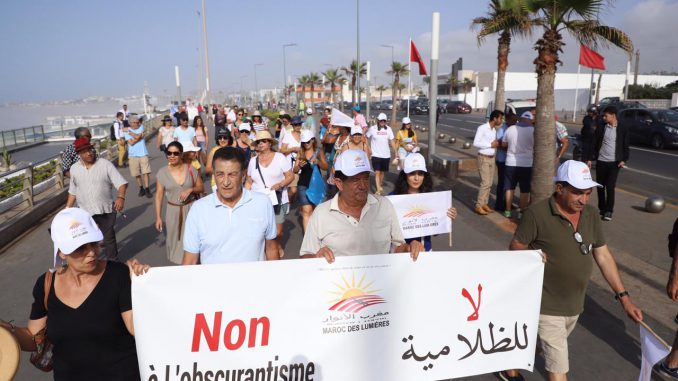
A group of human rights activists and community actors recently participated in a demonstration held at the Corniche de Casablanca in solidarity with Belgian volunteers who received terrorist threats for wearing shorts while participating in a volunteer workcamp in Taroudant.
This incident was followed by criticism from a PM of the Justice and Development Party (PJD) against the same volunteers. Many observers have criticized this parliamentarian’s position as inciting violence and hatred, leading to significant media controversy.
Wearing shorts and waving banners with the main slogans “Yes to shorts” and “No to obscurantism”, the participants in this sit-in, which started at 5 p.m., took advantage of this opportunity to take a symbolic initiative: collecting garbage on the beach.
This sit-in brought together women of all ages, wearing shorts. Some of them said that they wore it in the past because Morocco was more open and tolerant with regard to freedom of clothing, unlike today’s situation.
In a statement to our site, one of the participants said that she came with her daughter, about 16 years old, to say that wearing shorts is in no way inappropriate and that dress cannot reflect a person’s true intentions or position towards religion or God, continuing that when she was young she wore shorts and continues to do so to this day, just as she plans to wear them in the future, even as a grandmother.
For his part, Abdelilah Bilal Amrani, president and founder of the association “Maghreb Al Anwar”, (Morocco of Enlightenment) said that this symbolic sit-in is a replica of all the hate speech that has prevailed in the country since its infiltration by the venom of Islamism, adding that Morocco is a country of openness, of tolerance and freedom and that it must remain so, regardless of the obscurantists who hope for a completely different destiny for it, pursuing that the institution of the Commandery of Believers functions as a bulwark that protects Morocco and Moroccans from anything that is likely to infringe their individual freedoms.

Be the first to comment